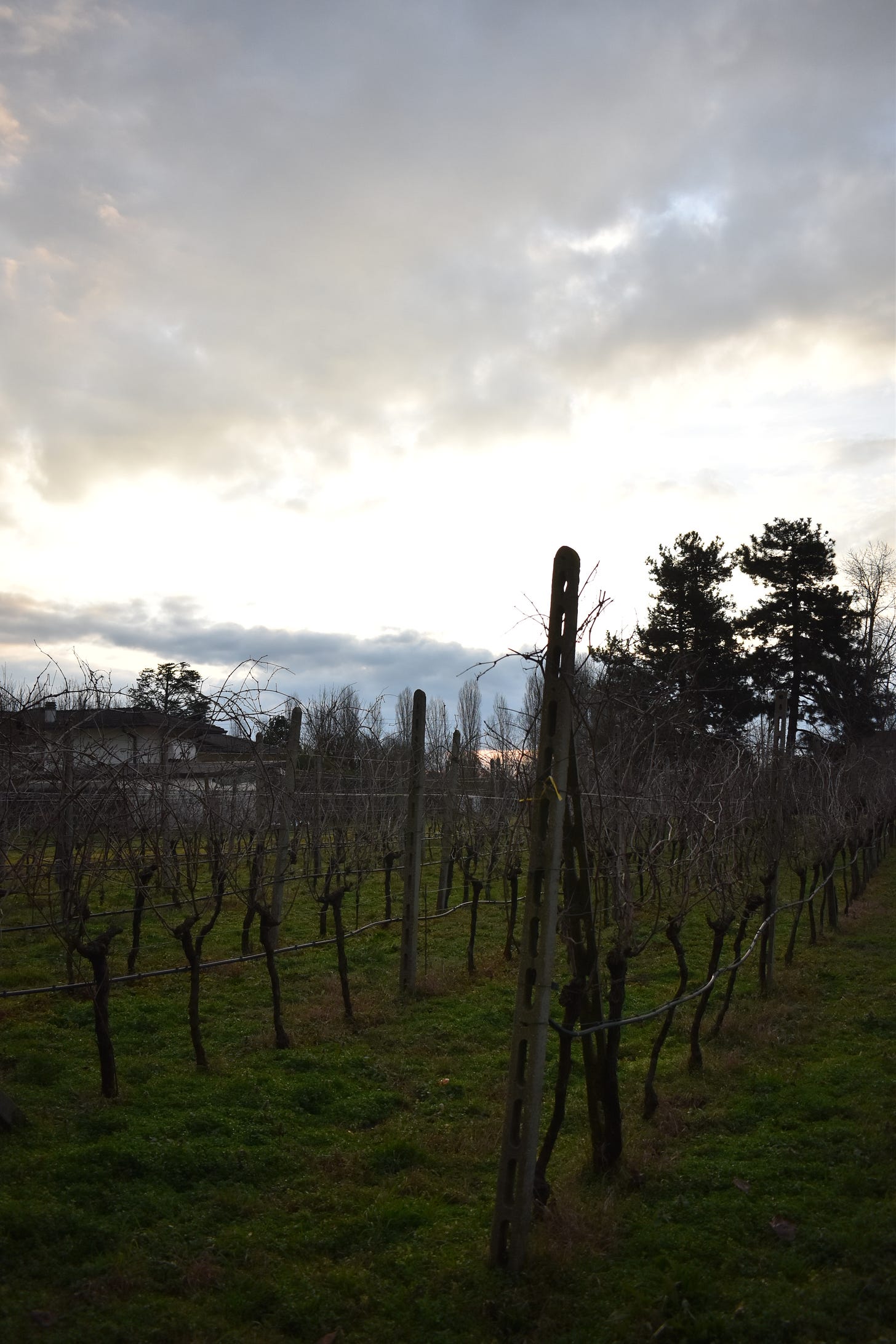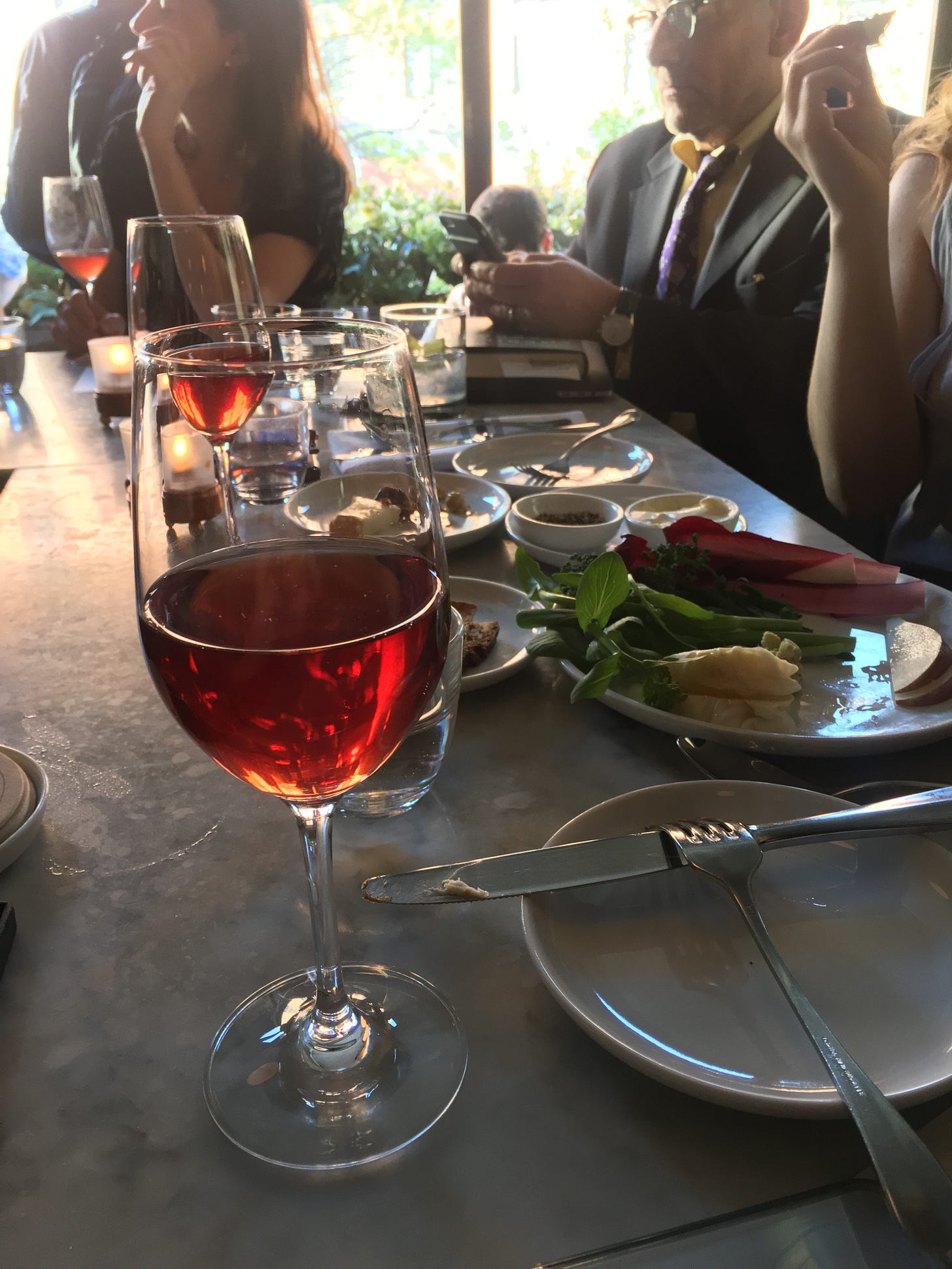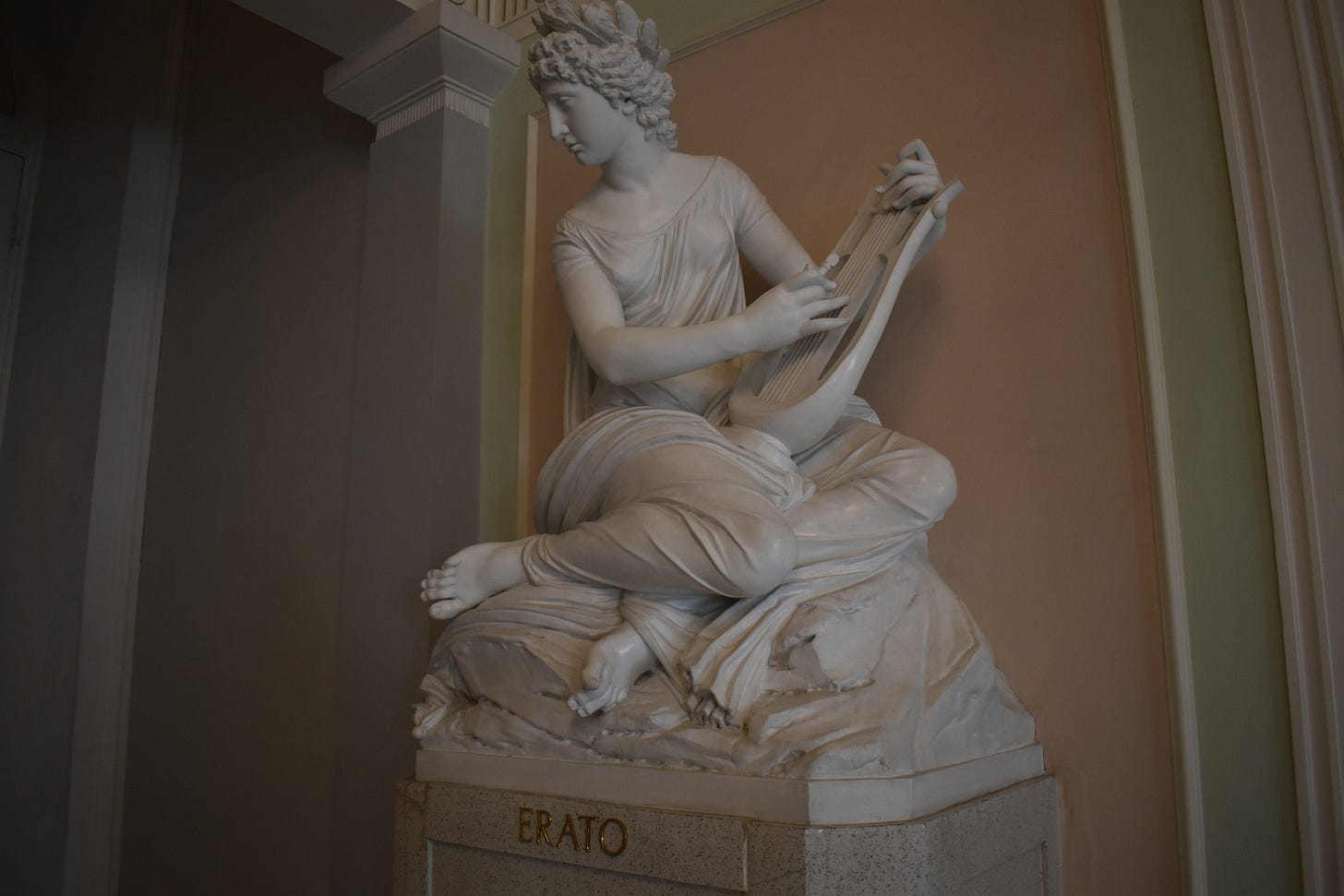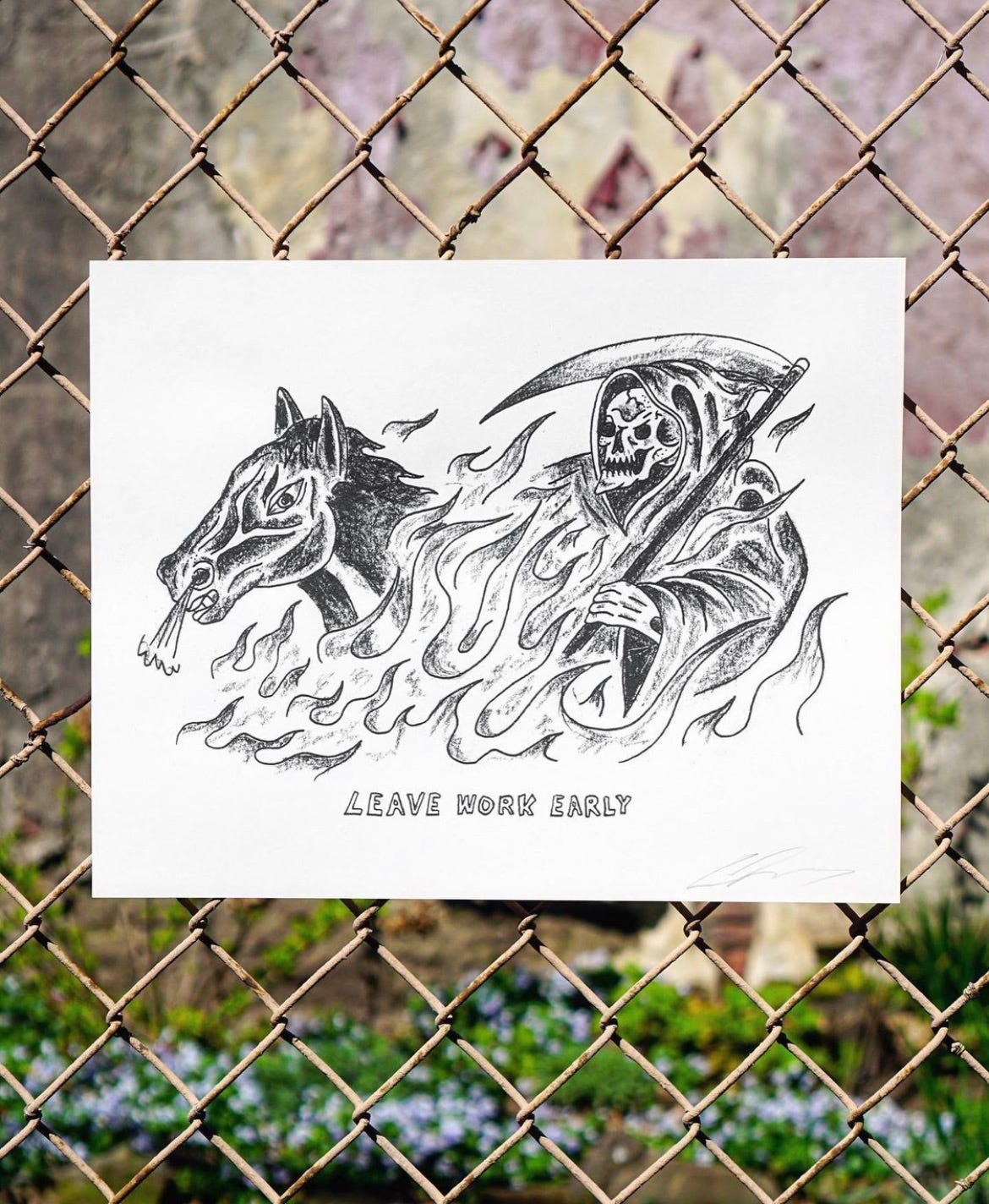This past week I was in the vineyards following behind my (very cute) pruning teacher, occasionally pruning a vine when called to—when an example was left for me to finish; when an interesting plant arrangement could illustrate optimal buds or incorrect buds; and so on. Otherwise I follow behind in the rows, removing the unnecessary canes after the pruner’s cuts, ‘cleaning’ the cane left for grape production, preparing the canes for the next task, the moment of bending and tying along the wires.
Learning pruning is an experience where one must focus: to understand how to not accidentally leave behind sub-optimal buds, forcing the plant to grow in an awkward or imbalanced direction, or to not make any cuts that could inadvertently stunt a plant, etc. This kind of focus during pruning can also mean you enter something of a flow state. As you begin to nearly automatically remove what is not necessary for spring, plant by plant, there is a gentle meditative quality that emerges. It reminds me of instances where I catch a rhythm writing poetry, or the deep focus of reading something compelling, or even when I’m out jogging, if I can nudge myself past the first mile or two without constant internal complaint.
When the hands are busy and the “front brain” or conscious mind is focused on something else, the back part of the mind crops up more. I often sweep when I’m on the phone—it keeps me busy so I can focus better on the conversation. The body moves in rhythm, the mind is set free, and then other odd stuff can bubble up.
I was definitely in this lightly altered state, under a grey sky and with boots squelched in February mud between rows of vines, when for no apparent reason I thought of the 1991 Disney song from Beauty and the Beast, ‘Be Our Guest.’ The candelabrum Lumière popped into my head, and I heard his goofy solo lines: “Life is so unnerving / for a servant who’s not serving / He’s not whole without a soul to wait upon.” The idea is that all the enchanted furniture and flatware in the Beast’s castle are “rusting” with disuse; they’re not able to work.
I always thought these lines of lament from Lumière were ridiculous—charming, but definitely not representative of what it must have been like to be an aristocrat’s servant in 18th century France, especially, you know, a cruel aristocrat who brings a curse upon his household. The idea that someone could be “not whole without a soul to wait upon” grates, after having worked for many years in relatively expensive restaurants in New York, therefore having served a large number of souls in a food and beverage setting. I know well what service means; I’m definitely whole without people who want me to bring them stuff and make them feel sophisticated about their culinary choices.
I think the goofy showstopper Disney tune popped into my head for some otherwise interesting reason while outside rhythmically pulling down last year’s vegetation. Those lyrics are a cheeky description of one who regards work as vocational, not with the transaction of: someone takes my time and efforts in exchange for money. In fact I only engage in this transactional understanding of work because I am forced to pay for my home, food, commute, education.
Rather, I do recognize myself in Lumière’s words if I think about it: there have been moments where I’ve taken a lot of pride in my ability to take great care of people in restaurants. The physical movements in those spaces can feel choreographed, nicely synchronized with one’s coworkers, polishing glassware, organizing tables, advising customers about rare grape varieties and unfamiliar cooking techniques, all with grace. It requires experience, training, skill. It's nice to feel that one’s mastered something or is in the process of doing so, and none of that really has anything to do with money.
Vineyard work, and I suspect all farming that is not done on the factory model, is also like this: you start to learn the habits of the physical movements, how to pull down canes off the wires so they don’t whip you in the face, how to hold scissors correctly so you don’t exhaust your dominant hand or cut too close to buds, how to identify still-living wood versus that which is likely dried out from previous years’ cuts. All of this is quite technical; one sees quickly why viticultural school is of use. The physicality combined with ongoing critical thinking becomes a rhythm, repeated across, in the case of this little winery of 3.8 hectares, thousands of plants. Into the vines you go, and hours later you come out, feeling different.
Not to be weirdly New England Puritan about it, but I do think work well done is its own reward. Seeing a dining room humming along, well-timed, with pleasant lighting, a convivial din, clean floors, glasses nicely lined at the bar. It’s… pleasing, despite all the problems that come with everything relentlessly being done for commercial gain at bottom. Likewise, seeing a vineyard that has been expertly pruned for years is also pleasing, when you know what you’re looking at. You see harmony in the plants, that they don’t struggle to grow, that their resulting fruit is concentrated in quality and also balanced along the vine, that the heads are well-formed. It really seems to be kin to sculpture, but you’re doing it with the vasculature of a vine instead of cutting metal, bending wires, shaping clay. Poetry is also certainly like this: I have never written it, not once, thinking that it might somehow improve or ensure the material conditions of my life. And yet I have spent serious hours of my life writing, simply for the satisfaction of seeing a poem that’s good after it’s been worked on for ages.
I was put in mind of the below passage from an essay by the writer Dorothy Sayers, published in 1942, called Why Work?
“The habit of thinking about work as something one does to make money is so ingrained in us that we can scarcely imagine what a revolutionary change it would be to think about it instead in terms of the work done. To do so would mean taking the attitude of mind we reserve for our unpaid work – our hobbies, our leisure interests, the things we make and do for pleasure – and making that the standard of all our judgments about things and people. We should ask of an enterprise, not ‘will it pay?’ but ‘is it good?’; of a man, not ‘what does he make?’ but ‘what is his work worth?’; of goods, not ‘can we induce people to buy them?’ but ‘are they useful things well made?’; of employment, not ‘how much a week?’ but ‘will it exercise my faculties to the utmost?’ And shareholders in – let us say – brewing companies, would astonish the directorate by arising at shareholders’ meeting and demanding to know, not merely where the profits go or what dividends are to be paid, not even merely whether the workers’ wages are sufficient and the conditions of labor satisfactory, but loudly and with a proper sense of personal responsibility: ‘What goes into the beer?’”
Can you imagine? I know there’s no world currently where shareholders speak up on behalf of working people, let alone where all of us might judge things, people, and indeed all activity by whether or not things are good, in and of themselves. I suppose this is one of the reasons I find myself learning in vineyards now, because the work, in and of itself, is good. The end results of all this effort with plants—the wines—are lovely. They are bright and satisfying to look at in the glass, they are delicious when drunk, bearing both the mark of their growing climate and the style of the maker, and they’re not absolutely destroyed by industrial methods that render all food sterile, soulless, and worse, near-poison. So not only is the work aesthetically pleasing to behold and to consider intellectually, I also know it’s not full of bullshit, destined for waste, eliciting the stupor that comes from ingesting pure marketing. All of this is good.
This is one of the interesting places where wine wanders out of aesthetics and nudges into ethics—not just the ethics of what we do with land or laborers, though those are fundamental, but also what it means to strive to do things well and beautifully for their own sake, to believe in the dignity of doing anything that is positive and human well at all.
Life is so unnerving for a servant who’s not serving—that is, serving something excellent to someone decent, in a situation that doesn’t degrade a single person or stretch of earth in the process. Maybe too much to ask. But I like to think that work is worth it.








